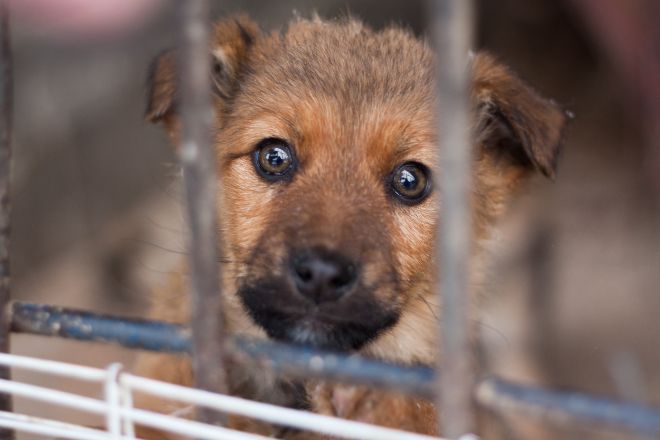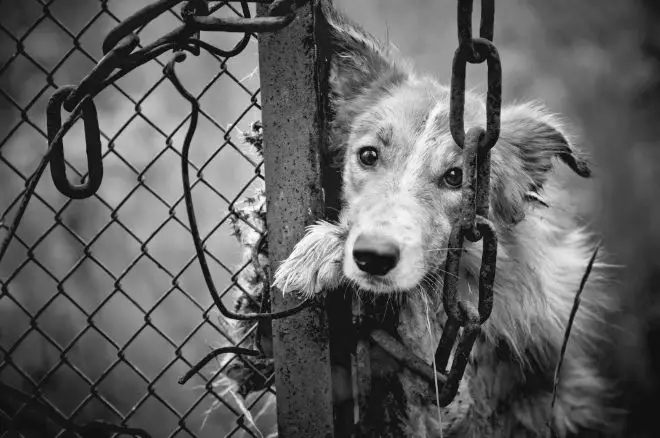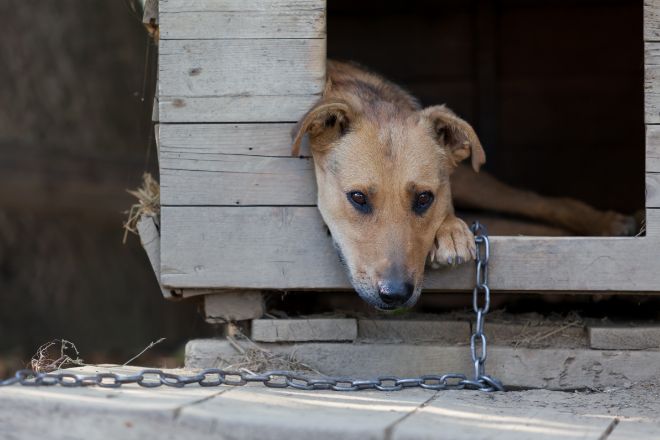The hearts of millions of people were captured last July when a Staffie-mix, Caitlyn, was rescued by Charleston Animal Society (CAS) with horrendous injuries to her muzzle after it had been cruelly clamped shut. Her incredible fortitude and compelling tale from victim to ambassador for animal rights compelled BarkPost to present her the greatest day.
She was only 15 months old when she was discovered on a doorstep, her mouth securely sealed with electrical tape so firmly that she required surgery. However, according to society officials, she didn’t require any more operations after the initial treatment.
The Staffie was given an honorary award by the Mayor of North Charleston, R. Keith Sumney after being fully healed – a bone to the city! Kay Hyman, the Director of Community Engagement at the CAS, took sweet Caitlyn to her present, a huge box full of Caitlin’s favorite toys – tennis balls!
The pup’s face says it all. This has to be the greatest day of her life!
Then, the fortunate dog got to spend a day as an honorary firehouse dog with firefighter Josh Allen of the Charleston Fire Department. While Caitlyn was recovering at the animal hospital, Josh spent many hours with her.
She even has a permanent reservation at her local Starbucks, where she enjoys her Puppuccino. Caitlyn quickly recognizes her favorite treat after seeing it and wagging her tail and lapping up the remains with anticipation.

How Can I Help My Dog Overcome Abuse?
There are a few things you can do to help your dog overcome abuse. First, be supportive and understanding. Dogs need love and support more than anything, especially after a traumatic experience. Second, make sure your dog has plenty of positive reinforcement. Reward your dog for good behavior with treats, petting, and verbal praise. This will help him feel safe and loved, and it will also help him associate positive experiences with humans. Lastly, get him professional help if needed. There are many excellent veterinarians who specialize in helping dogs overcome abuse and trauma. Thank you for being a loving and responsible pet parent!

Can An Abused Dog Ever Recover?
The best way to recover from abuse is to get adopted into a new home.
There might be grieving that you’ll need some help with. Even if it lasts years, grief is a normal response and always resolves which means the dog will feel better again eventually. Of course before that happens, he might have behaviors left over from his past which seem out of control or inappropriate for the environment in which you live today. That’s where positive reinforcement-based training can help because trainers use specific cues to change these behaviors because they know dogs don’t come pre-programmed with behavior rules appropriate for every place they live in this world.
The worst thing you could do is blame him or punish him when he does something wrong because he would not want to be abandoned again.
In the long run, an abused dog will recover if you give him time and patience as well as lots of positive reinforcement for good behaviors. He will become a happy house dog who can hold his head up high with pride because he got through one of the worst traumas anyone can endure.

How Do You Train A Dog Thats Been Abused?
This is a tough question. Rehabilitating a dog who’s been abused needs a variety of factors to be considered, including the duration and severity of the abuse, age and temperament of the dog, and evaluation by an experienced veterinarian for physical damage.
Often with cases like these there is bodily or neurological damage that cannot heal on its own without time, attention from both caretakers and professionals (mental health assistance may not only be needed but is sometimes prescribed) coupled with medication if necessary (antidepressants such as Xanax). Sometimes they will need to stay in what we call “rest homes” – under supervision with around-the-clock care until they reach a more trainable age (roughly four years old), when their brain is more fully developed.

How Long Does It Take A Dog To Forget Abuse?
It takes time, but about two to four years until the dog adjusts to its new home. In some cases, dogs will never get over being abused or neglected.
The rate of cell turnover in a dog is much faster than it is in humans, so scars may heal more quickly and be hard to detect for a couple of years. However unusual stimuli can cause a sign of fear or anxiety that did not exist before the abuse occurred – this would be particularly evident when meeting new people or animals with different smells, shapes or sounds.
In addition to the traumatic experience, there is physiological damage that occurs from abuse which can take time to heal as well.

How Do You Help An Abused Dog Trust You?
Answer: One solution may be to socialize the dog. If they’re not properly socialized and only with the owner, then most animals will always feel like strangers to them and never fully warm up. Spending time at a local shelter where there are volunteers who pet these dogs is an excellent way to teach the animal that strangers can be kind people who want what’s best for them.
It can’t work in isolation though – if someone has been abused by its owner, chances are it’ll also need professional help from a qualified vet or therapist (it might also help if you find out how it was disciplined). It’s possible we could even re-train the conditioned behavior of fear around people but this is difficult and still controversial in some circles.
We need to know that they will never be fully cured and people shouldn’t expect them to get over the abuse once and for all.